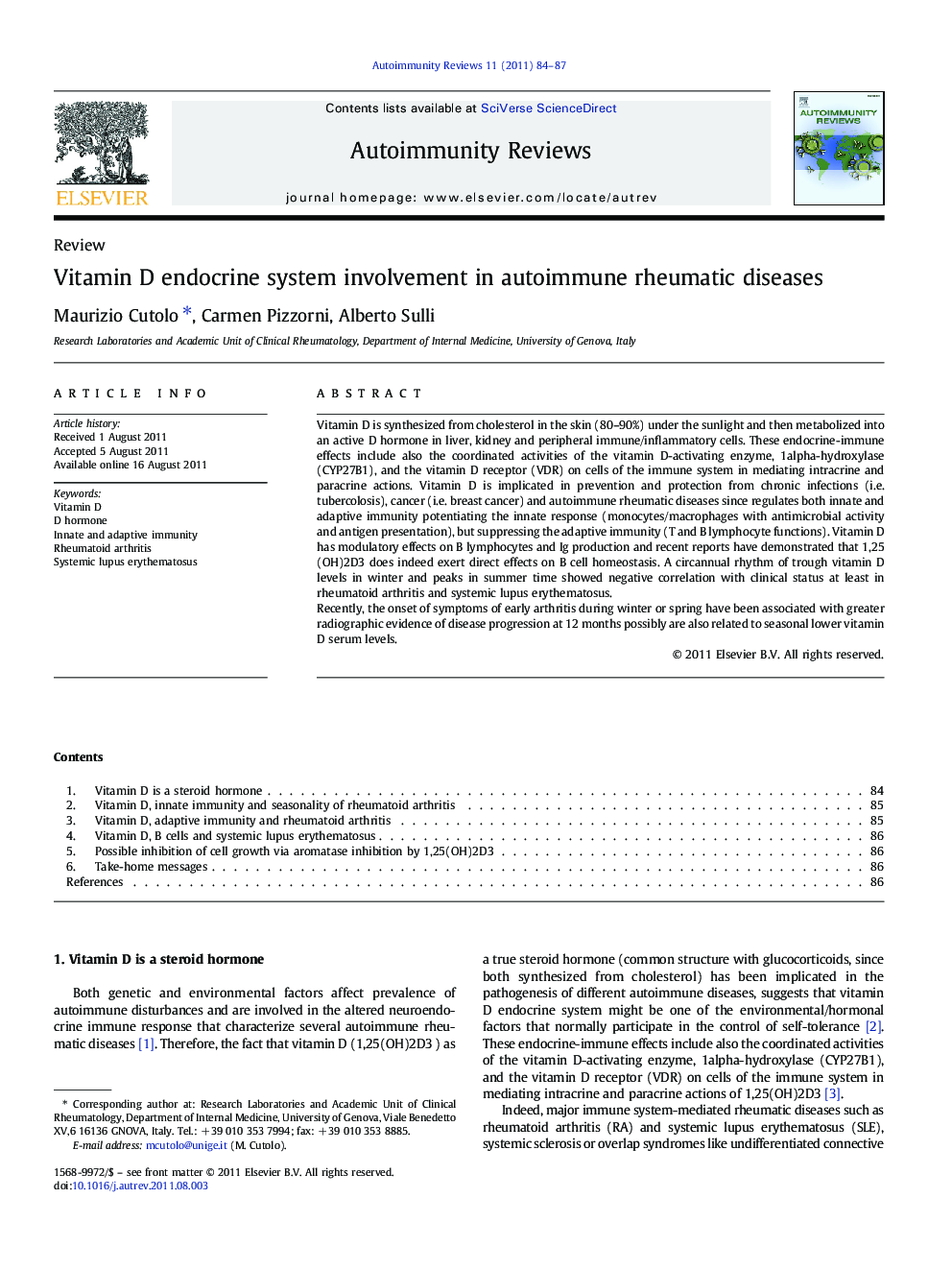| Article ID | Journal | Published Year | Pages | File Type |
|---|---|---|---|---|
| 3341831 | Autoimmunity Reviews | 2011 | 4 Pages |
Vitamin D is synthesized from cholesterol in the skin (80–90%) under the sunlight and then metabolized into an active D hormone in liver, kidney and peripheral immune/inflammatory cells. These endocrine-immune effects include also the coordinated activities of the vitamin D-activating enzyme, 1alpha-hydroxylase (CYP27B1), and the vitamin D receptor (VDR) on cells of the immune system in mediating intracrine and paracrine actions. Vitamin D is implicated in prevention and protection from chronic infections (i.e. tubercolosis), cancer (i.e. breast cancer) and autoimmune rheumatic diseases since regulates both innate and adaptive immunity potentiating the innate response (monocytes/macrophages with antimicrobial activity and antigen presentation), but suppressing the adaptive immunity (T and B lymphocyte functions). Vitamin D has modulatory effects on B lymphocytes and Ig production and recent reports have demonstrated that 1,25(OH)2D3 does indeed exert direct effects on B cell homeostasis. A circannual rhythm of trough vitamin D levels in winter and peaks in summer time showed negative correlation with clinical status at least in rheumatoid arthritis and systemic lupus erythematosus.Recently, the onset of symptoms of early arthritis during winter or spring have been associated with greater radiographic evidence of disease progression at 12 months possibly are also related to seasonal lower vitamin D serum levels.
